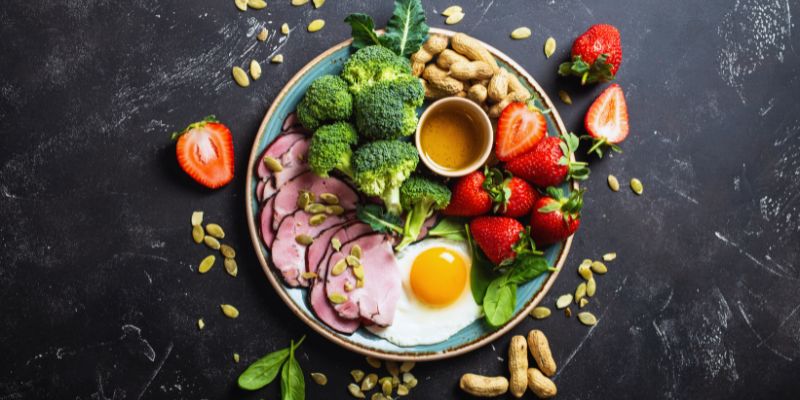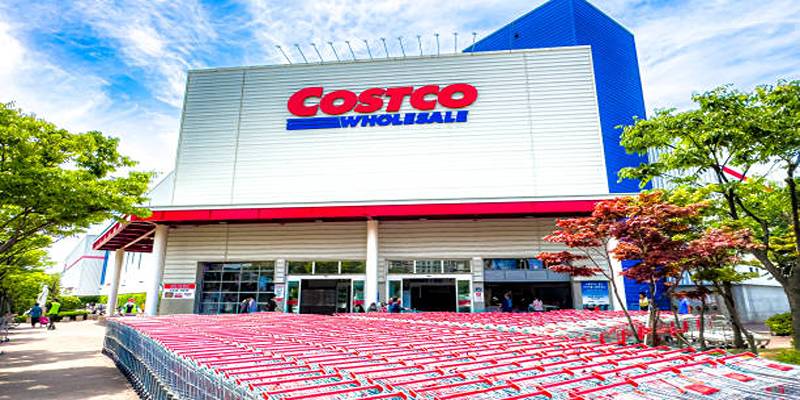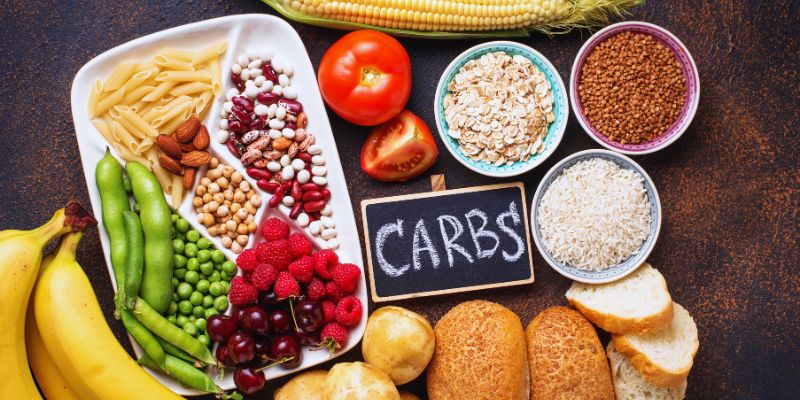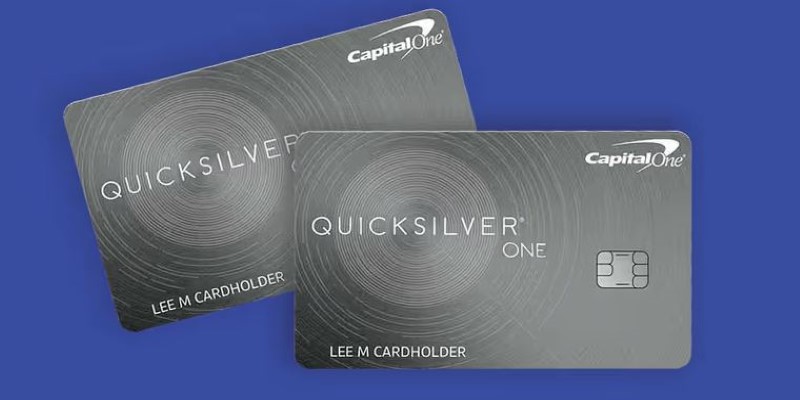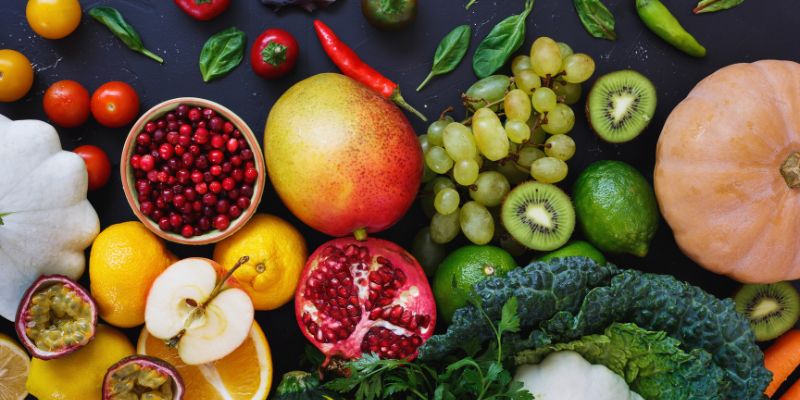Eating A Balanced Diet: An Ultimate Guide For a Healthier Lifestyle
Are you experiencing constant fatigue and struggling to concentrate? Dont know the reason behind it? The answer is a simple yet powerful, balanced diet. Just like a high-performance car needs quality fuel to run smoothly, our bodies need the right mix of nutrients to function properly. However, a balanced diet is not about cutting out entire food groups.
Its about developing a good eating plan that includes wholesome foods in the right proportions. But a lot of people misunderstand what a balanced diet truly means. If you are also one of them, worry not. In this article, we will discuss how to build a balanced diet, why it matters, and everything you need to know to make healthier choices. So, continue reading!
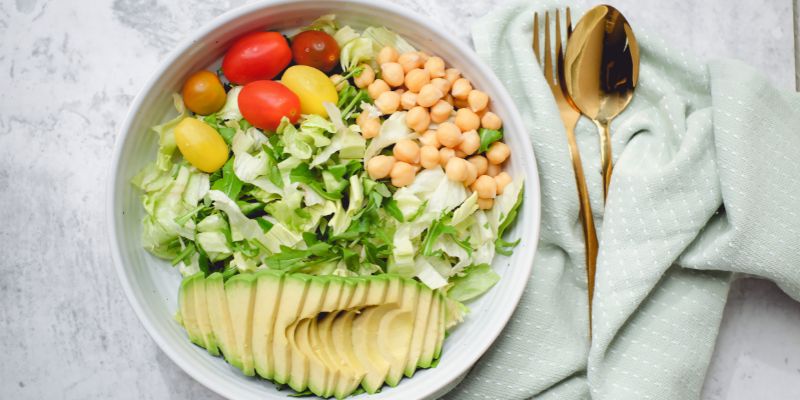
Why Does Having a Balanced Diet Matter?
A balanced diet is eating different foods in appropriate portions to avoid overeating and nutrient deficiencies. Now you must be wondering, why does it matter a lot? A balanced diet is important for maintaining overall health and well-being. It provides the body with the right amount of all the needed nutrients, which include:
- Carbohydrates: A balanced diet will contain carbohydrates that are a source of energy for your body.
- Proteins: A balanced diet provides enough amount of protein that is used for building and repairing the tissues.
- Fats: Healthy fats are also present in a balanced diet. The fats support cellular health and hormone production.
- Vitamins and Minerals: They are important for maintaining different bodily processes and to boost the immune system.
A balanced diet contains these nutrients and can prevent many diseases, including heart disease, type 2 diabetes, and obesity. Research has also shown that a balanced diet is very important for mental well-being. Studies have also found that diets rich in nutrients can prevent life-threatening conditions like cancer.
How to Build a Balanced Diet?
Building a balanced diet is very simple, and if you want to build one for yourself, follow the steps below guidelines:
- Fill Your Plate with Color: Having a colorful plate indicates your diet is balanced. Or, adding a variety of fruits and vegetables is important to build a balanced diet. That's because different colors mean different nutrients. Red color means, for example, tomato and strawberries; these fruits are rich in antioxidants like lycopene. Likewise, green color means green vegetables like spinach and broccoli. They are high in vitamins A, C, and K. Orange/Yellow will include orange and yellow vegetables like carrots and bell peppers provide beta-carotene, which is best for eye health.
- Choose Whole Grains: You can add whole grains to your diet. It is suggested that you prefer whole grains over refined ones. For example, brown rice, Quinoa and whole wheat bread are good choices in this regard. These whole grains are high in fiber, which aids digestion and helps control blood sugar levels.
- Prioritize Lean Proteins: The best way to build a balanced diet is by prioritizing lean protein. The best sources for lean proteins are chicken breast and fish. For vegetarians, plant-based options like beans and tofu are also available. The human body needs protein for the growth and repair of muscles.
- Incorporate Healthy Fats: It is very important to add healthy fats to your diet to keep it balanced. Different kinds of healthy fats are monounsaturated, polyunsaturated and omega-3 fatty acids. The best sources of monounsaturated fats are olive oil and avocados, polyunsaturated fats are walnuts and flaxseeds, and omega-3 fatty acids are salmon and chia seeds.
- Stay hydrated: Staying hydrated is part of a healthy diet, and water is the best way to stay hydrated. You should aim to drink at least 8 glasses of water daily. In addition to water, you can also improve your intake of juices and fruits to stay hydrated. It is also suggested to avoid sugary drinks and excessive caffeine.
Effective Tips For a Healthy Diet
Here are some tips you should know to maintain a healthy diet:
- Eat Homemade Food: Eating homemade meals will diversify the diet. Home-cooked meals usually contain better nutrition than takeout or restaurant food.
- Make Delicious Healthy Food: Most people dont like healthy food, but if it is cooked properly, it can be very delicious.
- Prioritize Eating Fresh Foods: The best way to stay healthy is to eat freshly made food. Choose fresh over processed options because processed food contains high sugar and sodium.
- Eat Mindfully: Mindful eating is also very important to maintaining a healthy diet. You should chew slowly and enjoy your food to prevent overeating.
- Add Healthy Snacks: Healthy snacks can also be part of a balanced diet. Nuts, fruits, and yogurt are considered as healthy snack options.
Common Myths About Balanced Diets
There are many myths about a balanced diet. Addressing the common myths is important to maintaining a proper, healthy diet.
- Carbs Are Important: Carbs are not bad for the human body. Complex carbohydrates, however, are important for energy and are present in whole grains and different vegetables.
- Skipping Meals Is Not A Balanced Diet: Most people think skipping meals or having meals two times a day will help them maintain a balanced diet. Skipping meals can slow the metabolism and cause other health problems.
- A Balanced Diet Is Hard To Maintain: Understand that adopting a balanced diet is not hard. If you are currently not eating fruits, having only an apple day can also be beneficial. Gradually shifting to a balanced diet will help you maintain a good diet plan.
Conclusion:
Following a balanced diet is very important because it provides important nutrients and improves well-being. A balanced diet can help you prevent many problems, like heart disease, obesity and even cancer. Building a balanced diet is very simple. You can add foods like fruits, vegetables, proteins and other important nutrients to make it balanced. Staying hydrated is also part of a balanced diet. However, juices with extra sugar cant be added to a balanced diet.

